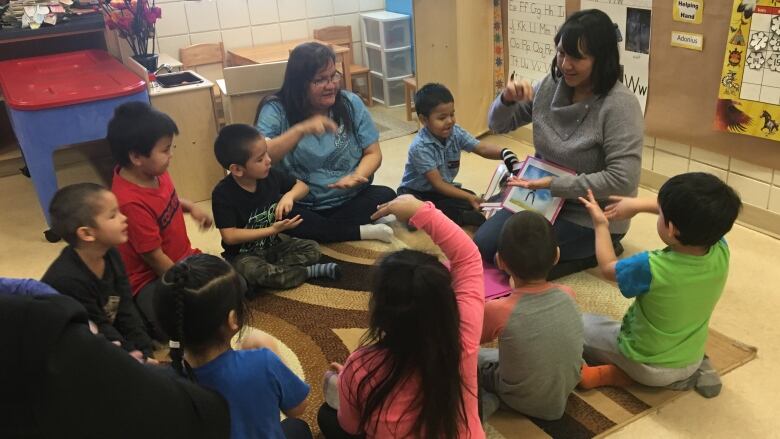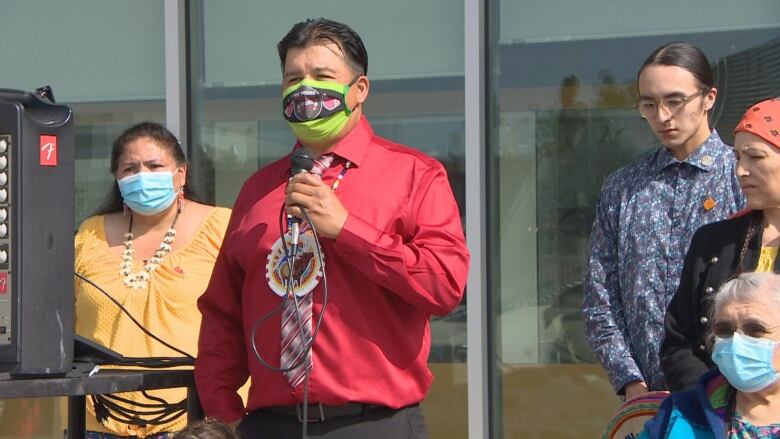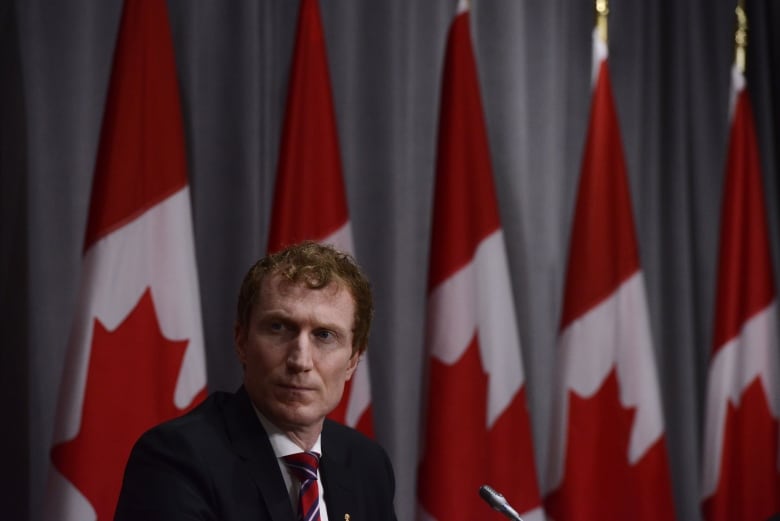First Nations back-to-school COVID-19 funding falls far short, says AFN regional chief
Indigenous Services Minister says announced funding per-student on-reserve higher than for provinces

The $112 millionfor COVID-19 back-to-school preparations for First Nations that Ottawaannounced on Wednesday falls far short of needs faced by communities, according to the Assembly of First Nations (AFN) regional chief responsible foreducation.
Federation of Sovereign Indigenous Nations Chief Bobby Cameron, who is the AFN regionalchief for Saskatchewan, said the over 630 First Nations across Canada need about $1 billion to fully prepare for the restart of classes amid the pandemic.
"Obviously our expectations were much higher," said Cameron, who holds the education portfolio.
"We should have received $1 billion or close to it and at least we would have a fighting chance to have our schools ready."
Prime Minister Justin Trudeau announced the $112 million specifically for on-reserve schools in addition to a broader $2 billion unveiled Wednesday to help provinces and territories prepare toreturn to classes amid the pandemic.
This followed an $82.5 million announcement Tuesday by Indigenous Services Minister Marc Miller for COVID-19-related mental health support for First Nations, Inuit and Mtis communities.
Indigenous communities vulnerable to outbreaks
Health experts have said Indigenous communities areparticularly vulnerable to COVID-19 outbreaks due to housing shortages andovercrowding, water shortages and otherservice and infrastructure gaps that contribute to lower health levels than the general Canadian population.
Many First Nations imposed strict lockdowns and quarantine measures to keep the virus at bay. There have been438 confirmed positive COVID-19 cases on-reserve, 411 which have recovered, and six deaths, according to Indigenous Services data as of Aug. 25.
However, the department's numbers have been criticized for failing to include off-reserve Indigenous COVID-19 cases.
Cameron said the back-to-school money announced by Trudeau would do little to allay fears for many First Nations that are considering delaying the start of the school year or not opening classrooms at all.
"We don't have enough resources from the federal government," he said.

Cameron said Ottawa has consistently failed to provide the needed funding for First Nations throughout the pandemic. He said First Nations leaders estimated in late March that they needed about $9 billion to deal with all impacts of the pandemic, which currently has no end in sight.
"We need a greater investment and we need it now," said Cameron.
"Our students are just as important as those in the rest of Canada."
Minister says department will remain 'flexible'
Miller said the federal government has provided more than$2 billion in support to Indigenous communities across the country since the pandemic began in addition to other federal programs like the Canada Emergency Response Benefit (CERB).
He said the $112 million for First NationsCOVID-19 back-to-school funding which will flow through education envelopes amounts to more per-student on reserve than for students under the provincial allotment.
The funding targets about 77,469 on-reserve, K-12 students, and breaks down to about $1,445 per student, far above the roughly $350 per provincial/territorial student.
"It is a number with respect to which we will have an enormous amount of flexibility," said Miller."It is a significant amount of money for schools on-reserve to do... retrofitting to ensure a safe opening."
Miller said the department has been working over the summerto help on-reserve schools prepare for reopening against the backdrop of the pandemic. He alsonoted that the department had provided additional funding for resourceslike laptopsat the tail end of the last school year, which was upended by the pandemic.
The minister said the department would remain nimble and flexible and ready to fill in any needs as they arise.

Miller said that flexibility would extend to areaswhere students need to leave their home communities for urban settings to complete their high school education. This has raised concerns aroundincreased exposure to possible COVID-19 infections that could follow studentshome.
"Legitimately,First Nations will have concerns over their children and they will have to make difficult decisions over how their students are schooled," Miller said.
"There may be communities that may take different paths as to the schooling of their children. Those students off-reserve that may need additional support when they come home is something we stand ready to support financially."
Miller said he expected some of the $2 billion flowing to the provinces and territories would be used to support not only First Nations students studying off-reserve, but also Inuit students in places like Quebec, Newfoundland and Labrador and the territories who study under provincial or territorial jurisdiction.
Nishnawbe AskiNation Grand Chief Alvin Fiddler, currently the acting regional AFN chief for Ontario, said he welcomed the funding, but that ittook too long to arrive.
"The delay ... has been very distressing to leadership across the region," said Fiddler, in a statement.
"We require immediate information on the proposed distribution of funds."












_(720p).jpg)


 OFFICIAL HD MUSIC VIDEO.jpg)
.jpg)



























































































